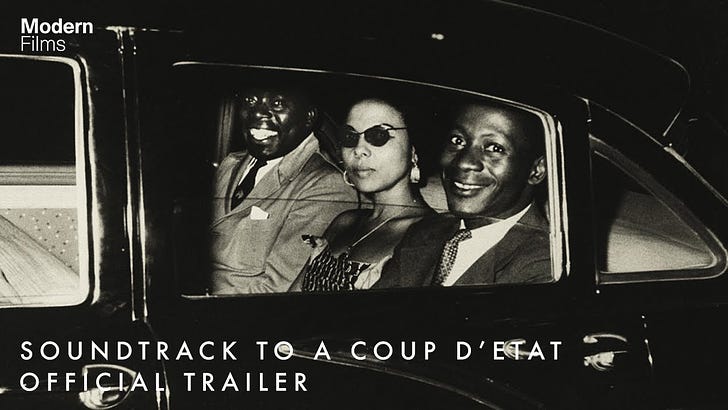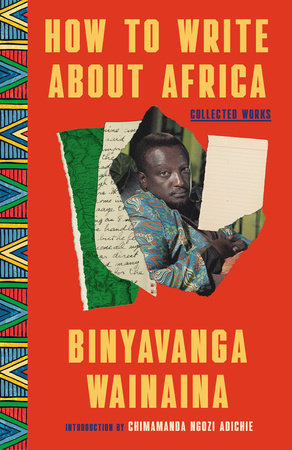Image of the Day
Good Morning from Lamu, Kenya

Last Week in Numbers
Year-to-Date Performance:
🟢 Johannesburg SE: 83,872.74 (+9.08%)
🟢 Nigerian SE: 97,722.28 (+30.69%)
🟢 Nairobi SE: 115.01 (+24.86%)
🟢 Ghana SE: 4,658.30 (+48.82%)
🟢 US S&P 500: 5,870.62 (+23.78%)
🟢 Shanghai Composite: 3,330.73 (+12.44%)
The Big Picture
🌍 Food for Thought: New York state's GDP ($2.284 trillion) exceeds the combined economies of Africa's top five: 🇳🇬 Nigeria ($395Bn), 🇿🇦 South Africa ($373Bn), 🇪🇬 Egypt ($347.6Bn), 🇩🇿 Algeria ($266.8Bn), and 🇪🇹 Ethiopia ($192Bn).
🇨🇩 70%: M23 rebels now control this much of eastern DR Congo's mineral-rich North Kivu province, gaining significant leverage over the region's gold and coltan resources since their 2021 advance.
🌍 Unopposed: WTO chief Ngozi Okonjo-Iweala runs unopposed for a second term, cementing her position as the first woman and African to lead the organization.
The Plot Twists
🇲🇺 0: In a dramatic Mauritius election upset, the incumbent party won no parliamentary seats amid a wiretapping scandal that briefly led to social media bans - a rare political earthquake in one of Africa's most stable nations.
🇬🇶 200: The number of Russian military instructors newly deployed to Equatorial Guinea, expanding Moscow's West African presence despite setbacks in Mali. They're training elite guards in a country where U.S. energy firms once invested billions.
🇳🇬 $1.2 Billion: Nigeria's contract with Chinese firm CNCEC to revamp a crucial gas processing plant for aluminum production, highlighting ongoing Sino-African industrial cooperation.
The Plot Complications
🇺🇬 98%: Uganda's planned external borrowing cut by 2026 as public debt hits $25.6 billion, triggering opposition anger and credit rating downgrades.
🇲🇱 $160 Million: Mali's tax demand from Australia's Resolute Mining, whose CEO remains detained in Bamako — part of the military government's push to renegotiate economic terms with foreign companies.
🇿🇼 2% Growth: Zimbabwe projects economic expansion despite ongoing drought. Finance Minister Ncube says the country is now "living within means." The figure contrasts starkly to 2019's 7% contraction.
Infrastructure Watch
🇦🇴 20 Years: The time taken to complete Angola's new Luanda airport, which can now handle 15 million visitors annually. Better late than never?
*Data accurate as of the close of markets across the continent
Spotlight Stories
Soundtrack to a Coup d'Etat: How Jazz Rocked Lumumba & the Congo
Belgian artist and filmmaker Johan Grimonprez is back with a finger-popping theory about the assassination of Congolese leader Patrice Lumumba in 1961.
In a fascinating new documentary, Grimonprez suggests that the US used jazz legend Louis Armstrong in a "cool war" offensive to take out Lumumba. That's right, the CIA purposely used jazz music to win hearts, minds, and uranium reserves in Africa.
The film proposes that Lumumba's murder, which happened soon after his election, was connived by the US, UN, and Belgium because they were afraid Lumumba might withhold Congo's uranium reserves, which were vital for making nuclear weapons. Plus, Lumumba's Congo was a key player in the "United States of Africa" movement, which was starting to make the Eisenhower government sweat.
And so now the juicy part: Apparently, the CIA used Louis Armstrong's massively popular African concerts as a cover for American operatives to blend in with the crowds. White foreigners wouldn't look so suspicious if they were just there to see Satchmo, right?
Of course, the musicians themselves weren't thrilled about being the CIA's useful idiots. Armstrong had already objected to an official Russian trip for similar reasons, and he started to smell something fishy about this African tour.
Grimonprez's film is a perfect companion piece to Leon Gast's 1996 documentary "When We Were Kings," about the Ali-Foreman boxing match in Zaire more than a decade after Lumumba's death - another chapter in this bizarre international culture war.
So, if you're in the mood for a conspiracy theory that's as smooth as a Miles Davis solo and as hard-hitting as a John Coltrane sax riff, check out "Soundtrack to a Coup d'Etat."
We know we can’t wait to watch it.
The Caretaker Standing Between Sudan's Ancient Treasures and Looting as War Rages

Meet Fozia Khalid, the sole caretaker of an ancient archaeological site, standing between priceless art treasures and rampaging armies accused of looting museums across the country.
Khalid is the brave woman in her sixties, and the only person left to protect the pyramids at Meroë, a former capital of the ancient Kingdom of Kush in Sudan. In peacetime, Meroë was a hotspot for tourists who wanted to see the carvings and hieroglyphs housed in some of the 200 pyramids (that's right, more than in the whole of Egypt!). But since civil war broke out in April 2023, the site has been deserted, and Khalid has been bracing for its destruction.
The group she fears most is The Rapid Support Forces (RSF), a paramilitary group that has taken over much of the country and left a trail of wreckage in its wake. According to Ikhlas Abdel-Latif Ahmed, head of museums at Sudan's national antiquities authority, RSF soldiers have already stolen artifacts from the recently renovated Sudan National Museum in Khartoum.
But it's not just the RSF that's causing trouble: Reports of looting have become so persistent that Unesco issued a statement in September warning that the "threat to [Sudan's] culture appears to have reached an unprecedented level." They called on art market professionals and members of the public to refrain from acquiring or taking part in the import, export, or transfer of ownership of cultural property from Sudan.
Zeinab Badawi, a Sudanese-British author and president of the School of Oriental and African Studies in London, said the war in Sudan now threatens the country's entire cultural heritage. "Today Sudan is a country that's synonymous with conflict, but in the ancient world it was the centre of an amazing civilisation."
And she's not exaggerating: Sudan was home to some of Africa's earliest human settlements, dating back to as early as 8,000BC. By 2,500BC, the Kingdom of Kush was established at Kerma, present-day Karima, in northern Sudan. The Kushites even ruled Egypt for more than a century after conquering it in the eighth century BC.
But now, reports of widespread looting of artifacts, including at a museum in Nyala, the capital of South Darfur, and damage to the Museum of the House of the Caliph Abdullah Al-Taayshi in Omdurman, are giving everyone flashbacks to the wholesale theft of artifacts during recent wars in Iraq, Syria, and Mali.
Binyavanga Wainaina: The Man Who Poked Fun at Africa Clichés
The New Yorker is reflecting on the life and work of Binyavanga Wainaina, the Kenyan writer who passed away in 2019, a master at calling out the tired tropes and stereotypes that plagued writing about Africa. His viral 2005 essay, "How to Write About Africa," hilariously skewered the lazy clichés that foreign correspondents loved to trot out: AK-47s, starving children, corrupt Big Men, and of course, the majestic African sunset.
If you haven’t read it, you really should.
Wainaina's writing wasn't just about making fun of clueless foreigners. He used his sharp wit to dissect the contradictions and absurdities of life in post-independence Kenya and other African countries. Whether he was writing about the influx of foreign aid workers in Nairobi or the delusions of wannabe white saviors, Wainaina had a knack for exposing the Emperor's New Clothes.
While Wainaina's essays were his strongest work, his fiction also tried to capture the complexities of African life. Some of his stories can be a bit hard to follow, but his satirical takedowns of sham humanitarians and foreign journalists are always on point. Wainaina never saw himself or any African he knew in the work of foreign writers, and the erasure was enraging.
Ultimately, Wainaina wrote because he wanted to tell stories that were as complex and messy as the ones he dreamed up in his head. He didn't want boosterish stories that ignored the hard parts of African life, but he also didn't want to be defined by the tired tropes of foreign writers. Wainaina wrote to create a space for himself and other Africans to exist on the page, in all their contradictory glory.
You can read the New Yorker’s write up on him, here.
Food for Thought
“Nobody is born with teeth.”
— Ugandan Proverb




